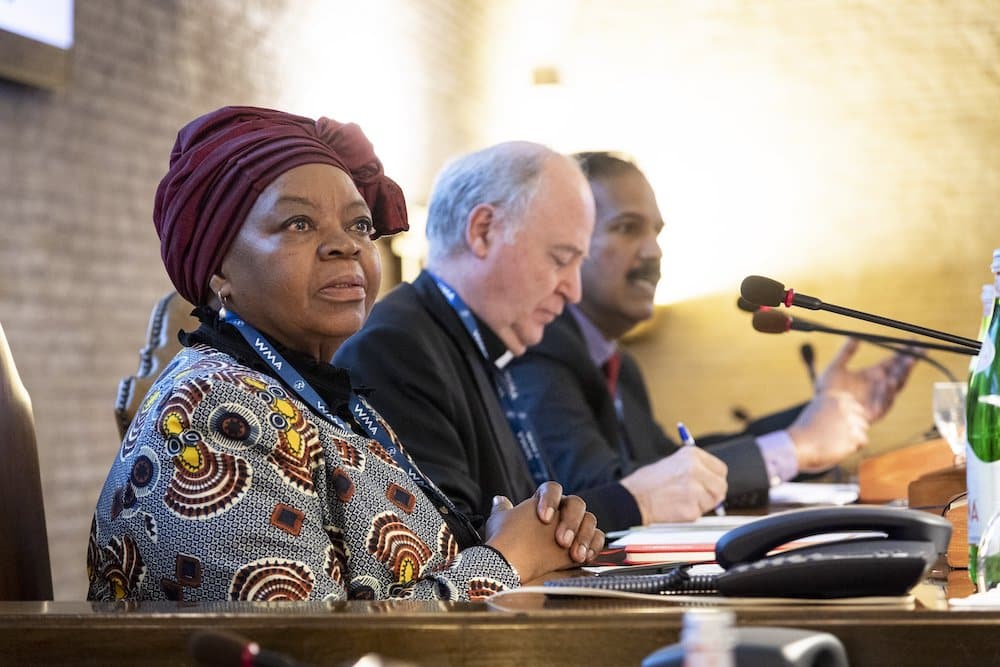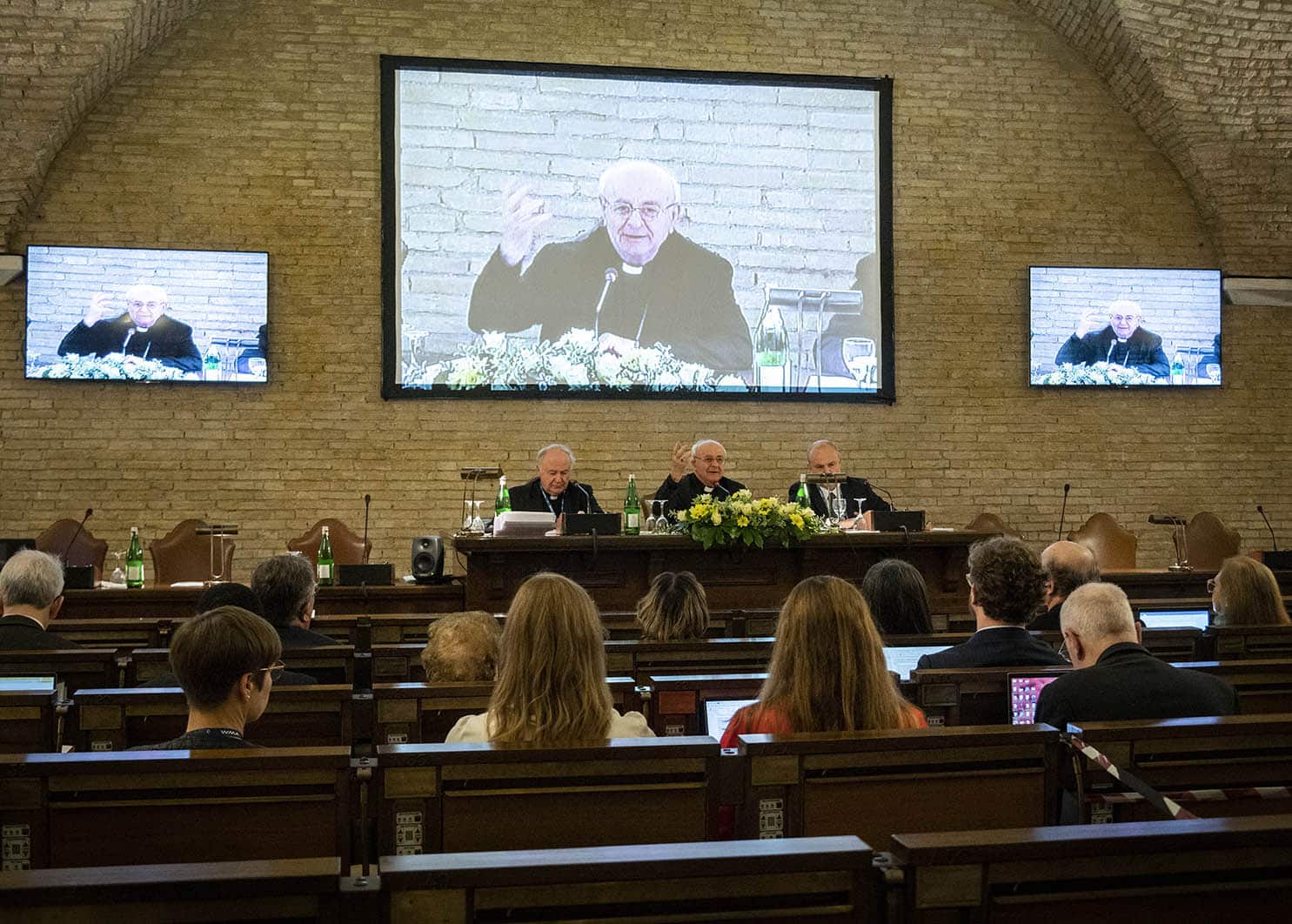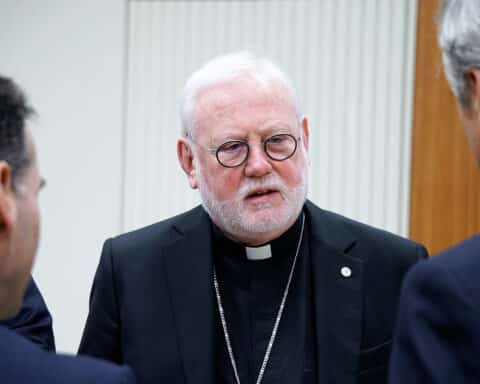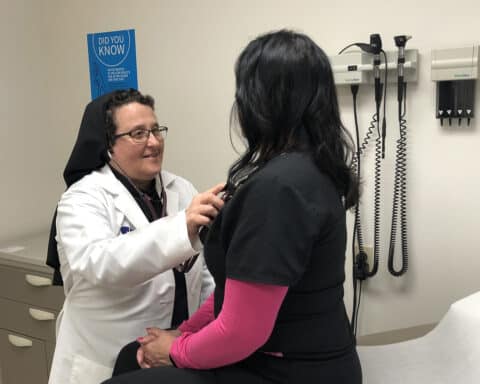VATICAN CITY (CNS) — Inequalities in healthcare and clinical research must be prevented, Pope Francis told medical doctors, health practitioners, researchers, ethicists and other experts attending a conference at the Vatican.
Promoting the life and health of others must be guided by an attitude of care, not made subordinate to the “mentalities of the market and of technology,” he said in a message read to conference participants Jan. 18.
“While the asymmetry present in the therapeutic relationship is all too apparent, the central role that the sick person should have has not yet become a reality. It needs to be continually safeguarded and promoted,” he wrote.
“We need to balance research opportunities and the welfare of patients, so that the expenses incurred by research and access to the resulting benefits are equitably distributed,” he added.
The pope’s message was addressed to experts and professionals in health care fields taking part in a Jan. 18-19 conference organized by the World Medical Association together with the American Medical Association (AMA) and the Pontifical Academy for Life.
Updating the Helsinki Declaration
The conference was one of many taking place over a two-year period around the world as part of updating and revising the Declaration of Helsinki. Atrocities committed through medical experimentation conducted by the Nazi regime on human beings during World War II resulted in the Nuremberg Code and later the Declaration of Helsinki, which both outline ethical standards for conducting medical research with human participants.
The Declaration of Helsinki, initially drafted in 1964 by the general assembly of the World Medical Association, is regularly updated and revised in order to ensure the ethical and responsible conduct of medical research globally as new technologies, risks and challenges emerge. The last revision was in 2013.
Revisions entail a lengthy process of gathering suggestions, insights and criticisms from all over the world at regional conferences with opportunities for feedback from the public. The final revision is scheduled to be considered in Helsinki in October.
The impact of big data
Dr. Jack Resneck Jr., past president of the AMA and a member of its board of trustees, told the Vatican conference Jan. 18 that the issues being looked at include the growing emergence of big data in the field of medicine and research.

For example, can the declaration’s existing principles adequately protect patients from a loss of privacy when their data are shared, he asked, and what about consent for future use of data?
Also, the current declaration addresses only physicians, he said, and the group working on the revisions “feels very strongly that these protections for human beings” should become the code of conduct for all individuals and teams involved in medical research on humans.
Some topics being addressed at the conference at the Vatican were: research carried out in poor communities or resource-limited settings; post-clinical trial access to experimental treatments; and guaranteeing free and informed consent to clinical trials and research.
What is at stake, Resneck said, is making sure people in resource-poor settings receive the benefits of medical research conducted in their communities but also that they are not subjected to trials that others want no part of or that are unfair, unethical or misleading.
Exploitative practices
Dr. Gifty Immanuel, a virologist, director of the Center for AIDS and Antiviral Research and a member of the Pontifical Academy for Life, said in his talk Jan. 18 that exploitative practices can exist when researchers with lots of funding conduct their research in poorer or vulnerable communities because “they have the facilities” and the scientific know-how, while the poorer communities have the people “and the data.”
There is also the problem of “ethics dumping,” he said, when researchers from countries or institutions with high ethical standards conduct unethical or unfair trials or practices on vulnerable or naive individuals or in communities that lack regulations or oversight.
Ethical compliance can be flouted in many ways, he said. In India, for example, there have been cases of researchers taking blood samples without people’s consent, vaccinating minors without parental consent, administering placebos without informing patients who were expecting treatment and misleading people by telling them they are taking part in a “project” rather than a clinical trial which demands more rigorous standards and protections.
Everybody is vulnerable to research misconduct, Immanuel said, so the question is how to protect everybody, especially in low-income settings.
Spiritan Father Peter I. Osuji, a faculty member of Duquesne University’s Center for Global Health Ethics, told the conference Jan. 19 that researchers should see themselves as “scholar-activists.”
‘Research should include advocacy’
“Research should include advocacy” and be a kind of an “emancipatory study” with freedom as its aim, he said. The purpose of going to marginalized or poor communities should also be “to express marginalized voices and present their experiences in authentic ways.”
Conference attendees also noted the importance of changing the way those who take part in a trial or research are referred to, calling them “participants” and not “objects” or subjects of study in order to show greater respect for their rights, agency and dignity.
Ana Borovecki, a clinical pharmacologist and toxicologist, and member of the pontifical academy, said Jan. 19 most misconduct and unethical practices happen when people are treated like objects.
For example, participants “are entitled to informed consent and this should be done properly,” she said. Unfortunately, “this is done terribly” with informed consent forms being worded in ways that are not appropriate for people with different levels of education.
Also, researchers should not “lie to themselves,” but recognize their trials are “not proven therapy” and might even be detrimental to people, she said.
“This is why we have all these regulations and we have informed consent procedures,” she said. And yet, “we still have problems because we always forget … and we should remind ourselves” they are always human beings entitled to care.





